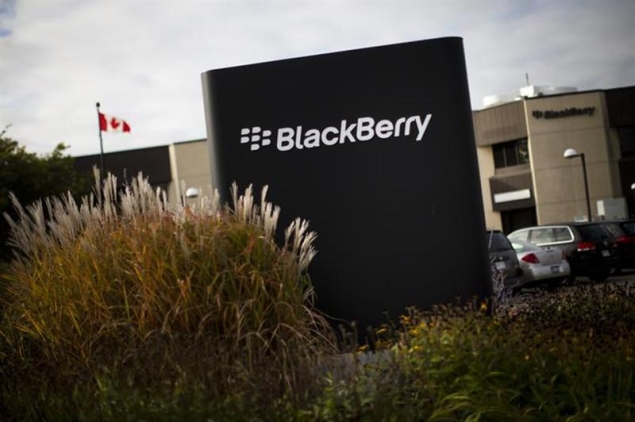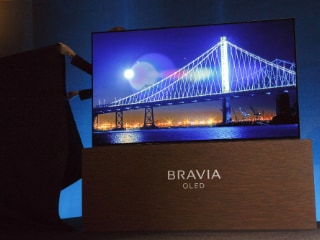- Home
- Mobiles
- Mobiles News
- BlackBerry a good long term investment, insists Fairfax's Prem Watsa
BlackBerry a good long-term investment, insists Fairfax's Prem Watsa

Struggling smartphone maker BlackBerry Ltd is a good long-term investment that is being unfairly punished by the stock market, the chief executive of the company's top shareholder said on Wednesday.
"We think over time BlackBerry is going to do well," Prem Watsa, CEO of Canada's Fairfax Financial Holdings , which holds about 10 percent of BlackBerry's shares, said at Fairfax's annual general meeting in Toronto.
Watsa, who has built a reputation as a shrewd value investor through winning plays such as his bet that the U.S. housing market would fall into crisis, has built up Fairfax's BlackBerry stake over the past three years. The smartphone maker's share price has tumbled from a Nasdaq high of about $148 in 2008 to a low of just over $5 last year.
Fairfax sought partners last year in a $4.7 billion bid to take BlackBerry private, but abandoned the plan after its due diligence showed BlackBerry could not handle the large debt load it would have to take on in such a deal.
Watsa said he still believes the company, which pioneered handheld email but has watched its market share disappear to rivals such as Apple Inc's iPhone, has valuable assets and is being underpriced by investors.
"In my experience, markets go up, markets go down. When stock prices come down, the marketplace ... predicts bankruptcy, and when it goes up, it predicts years of fantastic growth. And the truth is always in between," he said.
He also praised BlackBerry CEO John Chen and said the company was "so fortunate" to have him.
Chen, who replaced Thorsten Heins as CEO after the buyout was abandoned, is best known for turning around software maker Sybase in the late 1990s.
In addition to its equity stake, Fairfax has C$500 million in BlackBerry debentures, convertible at $10 a share into BlackBerry stock, after taking the lead in a debt offer after the buyout talks fell through.
BlackBerry's shares were at $8 on Wednesday on Nasdaq and at C$8.69 on the Toronto Stock Exchange.
While Watsa is optimistic on BlackBerry, he takes a dim view of the stock market's prospects overall, maintaining hedges on Fairfax's equity holdings as he sees potential for the U.S. economy to fall into deflation, citing the country's huge debt load and the danger of a property collapse in China.
He also singled out the high valuations of tech companies such as Twitter and Facebook , alluding to the dot-com bubble of the late 1990s.
"This is going to end in tears because it always has. Someday the music is going to stop and all these companies are going to come down quite dramatically," he said.
Fairfax's earnings performance has been volatile since the company added the equity hedges in 2010. It posted a net loss of $573 million last year as stock markets rallied.
But Watsa maintains Fairfax is not geared to produce strong profits on a quarter-to-quarter basis, but is focused instead on long-term results.
He said he won't add to the equity hedges currently in place, but has no plans to reduce them either.
"We've got enough hedging. But we'll maintain those hedges until all of this gets sorted out," he said.
© Thomson Reuters 2014
Catch the latest from the Consumer Electronics Show on Gadgets 360, at our CES 2026 hub.
Related Stories
- Samsung Galaxy Unpacked 2025
- ChatGPT
- Redmi Note 14 Pro+
- iPhone 16
- Apple Vision Pro
- Oneplus 12
- OnePlus Nord CE 3 Lite 5G
- iPhone 13
- Xiaomi 14 Pro
- Oppo Find N3
- Tecno Spark Go (2023)
- Realme V30
- Best Phones Under 25000
- Samsung Galaxy S24 Series
- Cryptocurrency
- iQoo 12
- Samsung Galaxy S24 Ultra
- Giottus
- Samsung Galaxy Z Flip 5
- Apple 'Scary Fast'
- Housefull 5
- GoPro Hero 12 Black Review
- Invincible Season 2
- JioGlass
- HD Ready TV
- Laptop Under 50000
- Smartwatch Under 10000
- Latest Mobile Phones
- Compare Phones
- Red Magic 11 Air
- Honor Magic 8 RSR Porsche Design
- Honor Magic 8 Pro Air
- Infinix Note Edge
- Lava Blaze Duo 3
- Tecno Spark Go 3
- iQOO Z11 Turbo
- OPPO A6c
- Lenovo Yoga Slim 7x (2025)
- Lenovo Yoga Slim 7a
- Lenovo Idea Tab Plus
- Realme Pad 3
- Moto Watch
- Garmin Quatix 8 Pro
- Haier H5E Series
- Acerpure Nitro Z Series 100-inch QLED TV
- Asus ROG Ally
- Nintendo Switch Lite
- Haier 1.6 Ton 5 Star Inverter Split AC (HSU19G-MZAID5BN-INV)
- Haier 1.6 Ton 5 Star Inverter Split AC (HSU19G-MZAIM5BN-INV)







![[Sponsored] Haier C90 OLED TV | Dolby Vision IQ, 144Hz OLED and Google TV in Action](https://www.gadgets360.com/static/mobile/images/spacer.png)









